Iowa State concludes its AAU membership
Iowa State University of Science and Technology today announced it has concluded its membership in the Association of American Universities (AAU).
The decision to end AAU membership is driven by Iowa State's commitment to its mission, strengths and impact. While the university's core values have not changed since joining the association in 1958, the indicators used by AAU to rank its members have begun to favor institutions with medical schools and associated medical research funding.
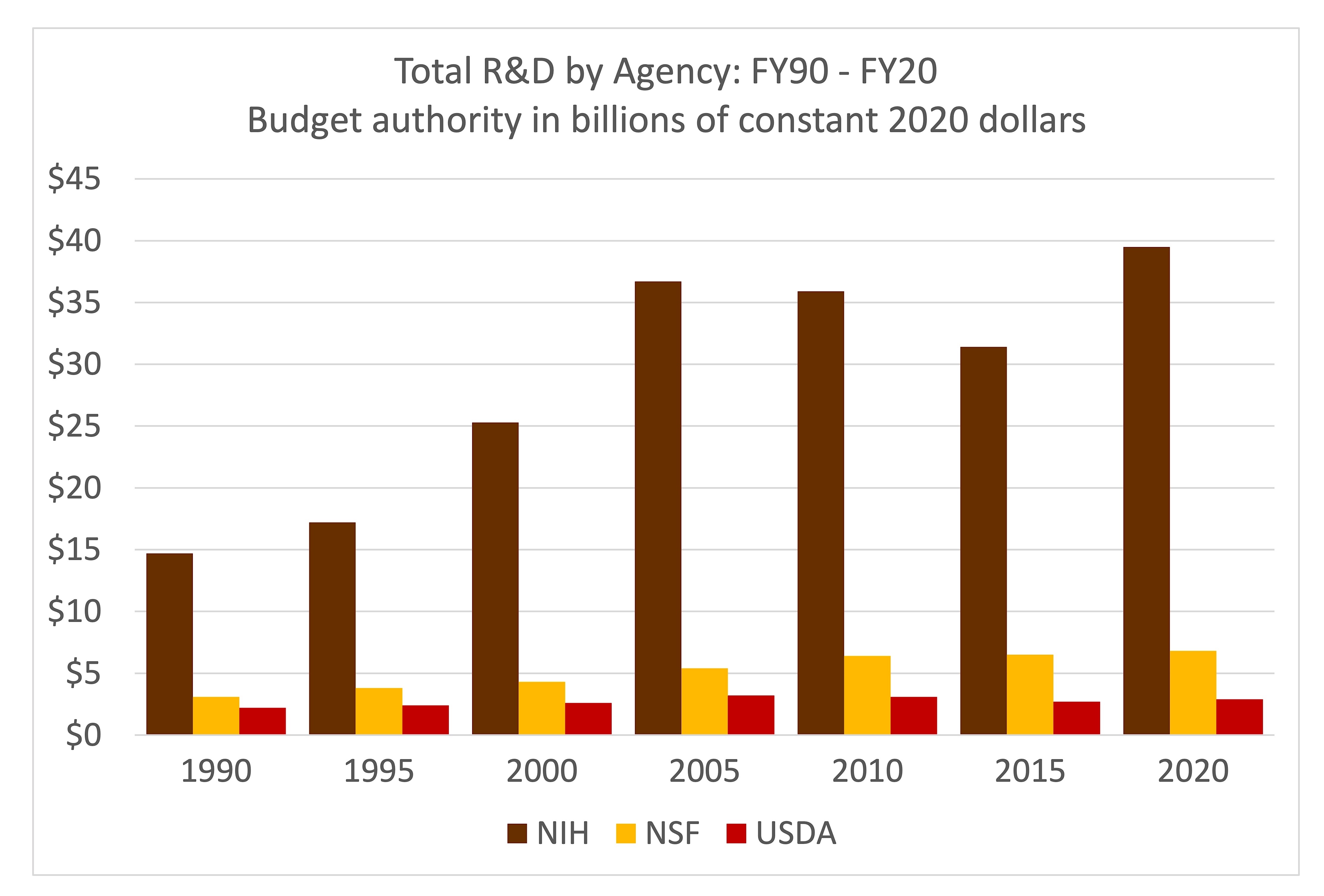
Medical research funding available through the National Institutes of Health has risen dramatically over the past 30 years. National Science Foundation and U.S. Department of Agriculture funds also increased, but at much lower rates. Source: American Association for the Advancement of Science.
Larger image
This year, the National Institutes of Health (NIH) alone will provide more than $40 billion in medical research funding, compared to $14.7 billion in 1990. The dramatic rate of increase in NIH funding over the last 30 years has far outpaced that of the USDA or National Science Foundation (NSF). (see graph)
Still, Iowa State ranks 16th in federal research expenditures among nearly 500 U.S. universities without a medical school and ranks in the top 10% in many key areas. (see sidebar) Iowa State faculty and staff earned a record $559 million in external funding in FY21, of which $231 million was research funding. When all research funding is considered equally, Iowa State ranks among the top 71 (or top 11%) of 655 U.S. research institutions and is among the top 100 worldwide receiving U.S. patents, again a testament to the innovation of its faculty and staff.
Iowa State also is one of only four universities contracted to manage a U.S. Department of Energy national laboratory. The Ames Laboratory, specializing in materials development, is also the only program physically located on a university campus.
Research rankings
Iowa State ranks in the top 10% of U.S. research universities for funding in many key areas.
Federal agency funding:
- Top 2% - Department of Agriculture
- Top 4% - Department of Energy
- Top 9% - National Science Foundation
Total and federally financed funding by discipline:
- Top 2% - Mathematics and statistics research
- Top 7% - Engineering research
- Top 3% - Non-science and engineering fields*
*Includes business, communications, education, humanities, visual/performing arts, and other areas
Source: National Science Foundation Higher Education Research and Development
"Iowa State has always been and will continue to be a renowned research university," said President Wendy Wintersteen. "As the university known for 'science with practice,' our faculty perform cutting-edge research in diverse areas such as materials science, nanovaccines, genetics, cybersecurity, agricultural engineering and more. We remain committed to our land-grant mission of creating a world-class educational experience for our students and providing research and technical expertise to benefit society and Iowans in every corner of the state.
"Ultimately, our efforts are measured by the success of our students, the innovation of our faculty, and our service to Iowa and the world," Wintersteen said. "These metrics are not exclusive to any one institution or group of institutions."
Focusing on our strengths
Iowa State remains notable in several important areas not prioritized by the AAU, such as affordability, student engagement, student retention, post-graduation employment, first-generation students and accessibility.
Iowa State's students place the university in the top 50 nationally for student engagement in the Wall Street Journal/Times Higher Education rankings. The university's first-year retention rate of 88% is more than 20 points above the national average of 65%. Similarly, the Princeton Review ranks Iowa State's undergraduate entrepreneurship programs 11th, a strong endorsement of the university's "Innovate at Iowa State" brand.
As one of America's first land-grant universities, Iowa State stays true to its founding principles of being welcoming and accessible to all students: 23% of Iowa State students are the first in their family to attend college and attain the benefits of a college degree, and 19% are Pell-eligible, meaning they have exceptional financial need. Students come to Ames to experience Iowa State's unique blend of practical and critical thinking skills, which leads to 95% of graduates becoming employed or pursuing an advanced degree within six months of graduation.
The AAU, founded in 1900, is composed of 65 research universities distinguished by the disciplinary breadth of their graduate education and research programs. Membership is by invitation only. Iowa State had been an AAU member since 1958.
AAU's membership indicators include Phase 1 metrics such as federal research and development expenditures, members of national academies, honors and awards, citations and books published. Phase 2 metrics, which carry less weight, include USDA, state and industry funding; doctoral degrees; and post-doctoral scholars.
An Iowa State education is also affordable -- the university's tuition rate has long been among the lowest of its AAU peers, making a world-class education more attainable for students and their families.
Evidence of Iowa State's innovation and entrepreneurship ecosystem can be found in the ISU Research Park, which includes nearly 100 tenants and start-up companies that employ more than 2,500 Iowans, and support hundreds of student interns each year. Iowa State leads the nation in career fairs for companies recruiting students in agriculture, business, and engineering. The university has received three Innovation and Economic Prosperity awards in the last five years from the Association of Public and Land-grant Universities (APLU).
Iowa State has a presence in all 99 Iowa counties through ISU Extension and Outreach, which brings the university's scholarship and innovation directly to Iowans in the areas of agriculture and natural resources, community and economic development, human sciences and youth leadership.
Iowa State is a Carnegie R1 "very high research activity" university and is active with leading higher education organizations, including the APLU, American Council on Education, Association of American Colleges and Universities, University Innovation Alliance and other scientific and research societies.
Forty term faculty receive promotions
Promotions for 40 term faculty for the 2022-23 academic year received final approval from President Wendy Wintersteen this month. Iowa State employed approximately 580 term faculty this year.
All seven of Iowa State's colleges are represented on the list, with Liberal Arts and Sciences faculty accounting for 50% of the promotions.
Term faculty promotions, by college
|
College |
Total |
To associate professor |
To full professor |
|
Agriculture and Life Sciences |
2 |
2 |
0 |
|
Business |
1 |
0 |
1 |
|
Design |
6 |
5 |
1 |
|
Engineering |
1 |
1 |
0 |
|
Human Sciences |
3 |
3 |
0 |
|
Liberal Arts and Sciences |
20 |
10 |
10 |
|
Veterinary Medicine |
7 |
5 |
2 |
|
Total |
40 |
26 |
14 |
Wells is next equal opportunity director
Carl Wells has been named the next director of equal opportunity and Title IX coordinator, following a national search and pending approval by the state Board of Regents. Wells comes to Iowa State from the University of South Carolina, Columbia, where he served as senior advisor for civil rights and affirmative action and recently completed an interim assignment as director of the office of equal opportunity programs and Title IX coordinator.
He will start at Iowa State May 16.
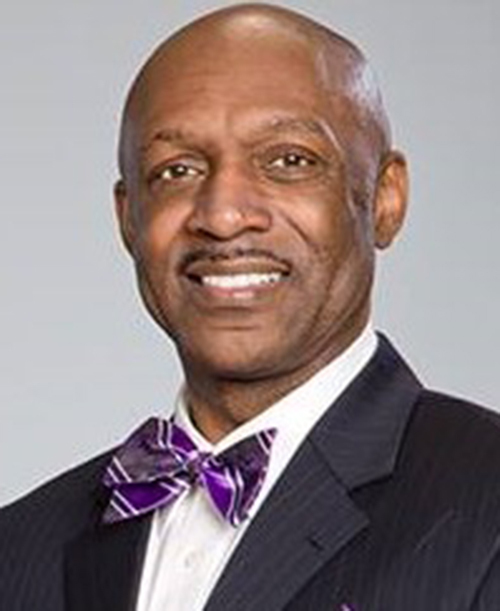
Wells
"Dr. Wells has a strong combination of expertise and higher education experience in the areas of equal opportunity, affirmative action, Title IX and anti-discrimination policy," said President Wendy Wintersteen. "We are pleased to have him join our leadership team to help advance Iowa State's commitment to having a welcoming, accessible and inclusive learning and working environment."
Reporting to the office of the president, Wells will oversee the office of equal opportunity responsible for supporting equal access to employment and educational opportunities, including investigating complaints of discrimination and sexual misconduct, ensuring compliance with the law and providing related educational programs to campus.
"It is an honor to be selected to serve in this role at Iowa State University. My wife Wanda and I are excited to become part of the campus community and the city of Ames," Wells said. "My goal is to inspire a community-developed vision for equity and compliance that all members of the Iowa State community recognize, embrace and celebrate.
"I will work to build upon and enhance the strong sense of collaboration based upon trust, transparency and honesty that already resides at Iowa State," he added.
Wells has more than 20 years of experience at the University of South Carolina in roles focused on equal opportunity, civil rights, affirmative action, Title IX, diversity and inclusion.
He earned a Ph.D. in public health administration with an emphasis in human resources, employment and law from the Norman J. Arnold School of Public Health at the University of South Carolina; a master's degree in divinity with an emphasis in counseling from Emory University, Atlanta; and bachelor's degrees in communications and music from Winthrop University, Rock Hill, South Carolina.
In making the announcement, Wintersteen thanked Mary Howell Sirna, administrative advisor and attorney on staff for ISU Police, for her leadership since October as interim director of equal opportunity. Wintersteen also thanked members of the search committee and campus community for their thoughtful consideration of candidates.
Wintersteen praises work of faculty, senate
President Wendy Wintersteen thanked the Faculty Senate for its efforts this year and praised the work of faculty the past two years at the senate's April 19 meeting.
Wintersteen highlighted the senate's decision to provide more flexibility about who can earn certificates at ISU as a significant step forward. It permits students who have an associate's degree but not a bachelor's to pursue an undergraduate certificate.
"It allows us to reach out to new student audiences, grow enrollment and is important in thinking about Iowa State's future," she said.
She noted the continued dedication to research at Iowa State. ISU ranks 16th in the nation for research expenditures among universities without a human medical school.
Wintersteen also recognized faculty, staff and students who have received significant national awards.
Admitted student day
Senior vice president and provost Jonathan Wickert updated senators on the inaugural Admitted Student Day on April 7. Students who had been offered but not yet accepted admission to Iowa State were on campus, along with their families, to tour and learn more about the colleges. Eighty staff from central enrollment management units helped coordinate the event, and 60 volunteers from the colleges took part, Wickert said.
"We had 460 students, and well over 1,000 people including their families, take part and really see the Iowa State way," he said. "We had 55 prospective students sign at the event, in a format like you see with student-athletes when they pick a school, but of course we will have more leading up to the May 1 'decision day' and after."
Wickert said he hopes the event will help reduce the "summer melt" of students who accept an offer, or multiple offers, and change their minds.
Incomplete course policy
Senators will vote next month on proposed changes to the incomplete course policy to ensure it is used only due to special circumstances beyond a student's control. If a student completes no further work, a grade must be included in the incomplete contract. When the incomplete is resolved, it is recorded with a notation and has no impact on the student's academic standing. The resolved grade becomes part of the student's GPA.
An incomplete will change to the grade indicated in the contract after one calendar year regardless of whether the student is enrolled at that time. A copy of the contract must be retained by the instructor and department chair or designated representative.
Elections
Rob Wallace (ecology, evolution and organismal biology) was elected senate secretary. Four council chairs also were elected:
- Academic affairs: Rahul Parsa, finance
- Governance: Matthew Frank, industrial and manufacturing systems engineering
- Judiciary and appeals: Steve Freeman, agricultural and biosystems engineering
- Resource policies and allocations: Mikesch Muecke, architecture
Other business
The senate approved:
- An undergraduate dairy cattle production management certificate in the animal science department. The 24-credit certificate requires a minimum of 18 credits at the 300 or 400 level and at least a 2.0 GPA. After earning the certificate, students will understand the nutrition, physiology and breeding applications in dairy cattle production.
- An interdepartmental minor in global human sciences that allows students to increase international engagement without having to travel if they choose not to.
- An amendment to the Faculty Handbook on term faculty advancement. It establishes the same rank requirements for departments' advancement committees as used for promotion and tenure committees.
- A resolution encouraging students to participate in the midterm election on Nov. 8. The senate encourages faculty to be flexible on attendance policies and refrain from scheduling exams and major assignments on election day.
Senators will vote at the May 3 meeting on:
- A change to the interdisciplinary design bachelor's degree, to a secondary major program in the College of Design. The secondary major will reinforce a primary major and focus on inventiveness, visual communication and imagination skills. Enrollment numbers for the degree declined significantly since 2018, and the college stopped admitting new students to the program in fall 2020. The change better aligns with the college's interdisciplinary portfolio of innovation and entrepreneurship options. A committee expects to add 25 to 50 students from across campus per year.
- A bachelor's in climate science in the geological and atmospheric sciences department. The major will educate students on how the climate system works, climate impacts on society and relevant sustainability and mitigation options. The 74-credit major would be the first at a state Board of Regents university and has support from the universities of Iowa and Northern Iowa.
- An update to the Faculty Handbook to include recognition of innovation and entrepreneurship activities in sections on annual reviews and standards for promotion and tenure. ISU has placed a greater emphasis on innovation and entrepreneurship, but the handbook does not mention either in faculty responsibilities like teaching, research, service, extension or professional practice.
- A resolution condemning the Russian attack on Ukraine. It calls for the end of cooperation with Russian businesses that pay taxes in this country and organizations that help finance the war. It also asks faculty to combat the spread of misinformation and provide support to Ukrainians and refugees.
Reorganization enhances institutional risk management
Iowa State will align the units primarily responsible for risk management and mitigation, including the office of university counsel, department of public safety, office of risk management, and environmental health and safety (EH&S), effective May 1.

Norton
This move will change the reporting line for the associate vice president for public safety and chief of police, who now will report to the university general counsel and continue to oversee the department of public safety, which includes ISU police, risk management and parking.
The assistant vice president for environmental health and safety also will report to the university general counsel and continue to oversee EH&S programs and services.
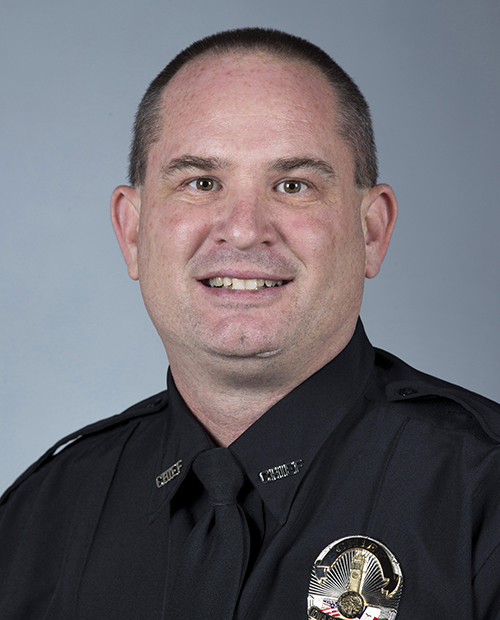
Newton
Michael Norton will take on an expanded leadership role as university general counsel and chief risk officer. Michael Newton, associate vice president for public safety and chief of police; and David Inyang, assistant vice president for environmental health and safety; will retain their roles and titles and report to Norton. Reporting lines to Newton and Inyang will remain the same, and offices will remain in their current locations.
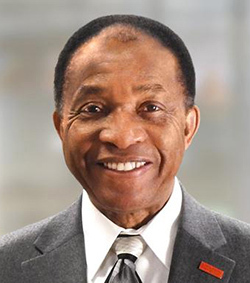
Inyang
"The alignment of these units will enable the university to take a broader view and enhanced strategic focus on institutional risk management by leveraging the office of university counsel's deep understanding of the increasing compliance and risk factors facing the university," said President Wendy Wintersteen. "This will better position the university to continue accomplishing its goals through a collaborative approach to facilitating compliance, mitigating risk and promoting the safety and well-being of the ISU community."
Library tweaks extended loan renewal
Before closing out another academic year, take a minute to look around your space for anything checked out from the University Library. Renew or return extended loan items due May 13.
Return or renewal
Items borrowed on extended loan must be renewed or returned by May 13. There are three ways to renew an item:
- Online
- Call 515-294-3961 and have your NetID or library visitor card with you
- In person at any university library (Parks, Vet Med, Design)
A simple renewal process -- online or by phone -- can be used until an item has been checked out for three years. At that point, it must be returned or checked out again by going to the library. Access service department head Dawn Mick said during the pandemic, library staff reviewed software capabilities and discovered it could limit checkout time to three years, something not previously possible.
"We are revising our lending policy, and the end-of-year renewal period seemed like a good time to implement this change," Mick said. "It gives people a chance to take stock of the library materials they have had checked out for years. Since these items belong to the community, it's important they can be accounted for by the people who have them."
Extended loan is available to faculty, graduate students, post-docs, professional and scientific staff, emeritus faculty, affiliates and others. They can check out books, journals, DVDs and other materials for an academic year. People who still need an item after three years simply bring it to the library, check it out and leave with the item.
"Our software actually keeps track and tells the person how long they have until they have to renew or return it," Mick said. "It is for any library materials that are not reference materials or from tech lending."
Individuals received a renewal notice on April 12 about the upcoming deadline to return or renew extended loan items. Mick said it led to numerous returns.
About 2,000 people currently have items on extended loan. Several items have been checked out for 20-plus years with the longest nearing 31 years, Mick said.
If someone else needs an item that is on extended loan, a recall is issued. The current borrower receives a notice with a new, shorter due date. Another option is interlibrary loan to get another copy.
Celebrate sustainable living on Earth Day and beyond
At its annual celebration of Earth Day on Friday, April 22, the sustainability office's Live Green initiative will sponsor a variety of activities from 10 a.m. to 2 p.m. on the lawn south of Parks Library.
At this year's celebration (theme: "I'm With Her: Our Planet. Our Home. Everyone Needed"), enjoy yard games, music by ISU's student radio station, games, greener-living prizes, fruit-infused water and cookies. Bring a bicycle for a mini check-up or make a nonperishable donation to SHOP, the student food pantry. Campus and local organizations will be on hand to talk about their commitments to environmental, social and economic sustainability.
Earth Day is just one day in Earth Month, which is celebrated throughout April. Keep the momentum going by participating in an upcoming activity from the Live Green team's Earth Month events calendar, including:
April 22
Earth Day poetry slam, Alluvial Brewing Company, 3715 W. 190th St. (6 p.m.)
Water Rocks, Iowa State's youth water education campaign, is hosting a family-friendly event with spoken word artists competing for a top prize of $400. The event also features free food and nonalcoholic drinks, live music and the Conservation Station Marsh Madness environmental education trailer.
April 23
Campus Service Day, locations vary (10 a.m.-4 p.m.)
Sign up for one of 10 different volunteer activities during the service day organized by the student-run Campus Service Council. Faculty, staff, students and community members are welcome to clean College Creek, write letters to children's hospital patients, pack supplies for emergency assistance programs and more. See all the options at the online registration site.
April 24
Ames Reads Leopold, Hickory Shelter, Brookside Park, 1325 6th St. (1:30-3:30 p.m.)
ISU's Leopold Center for Sustainable Agriculture holds its annual reading of essays by its namesake conservationist and native Iowan Aldo Leopold, along with a nature walk in Brookside Park, a story walk for children and a writing exercise with Distinguished Professor of English and Iowa poet laureate Deb Marquart.
April 26
Electronic waste recycling, Department of Transportation, 800 Lincoln Way (7 a.m.-12:30 p.m.)
Recycle electronics responsibly at this one-day opportunity for federal, state and local government employees. Many items will be accepted for free, including computers, wires, DVD players, keyboards and mouses. Fees are $5 for most other items, with TV and monitor fees ranging by size ($20-$60).
April 30
Stash the Trash, locations and times vary
The annual volunteer clean-up effort brings students and community members together to pick up litter and assist homeowners with yard work. Trash bags are available any time before the event at the Resource Recovery Plan (110 Center Ave.) or the east lobby of City Hall (515 Clark Ave.), or on April 30 in the Reiman Gardens parking lot, where a dumpster for disposing Stash the Trash collections will be available April 29-May 1.
Ioway Creek trash clean-up, Brookside Park (9 a.m.- 1 p.m.)
Meet near the 6th Street bridge to help pick up garbage along and in Ioway Creek. Bring a water bottle, gloves and appropriate clothes, including closed-toe shoes that can get muddy. Lunch will be provided. Register online by April 25.
Smooth entrance
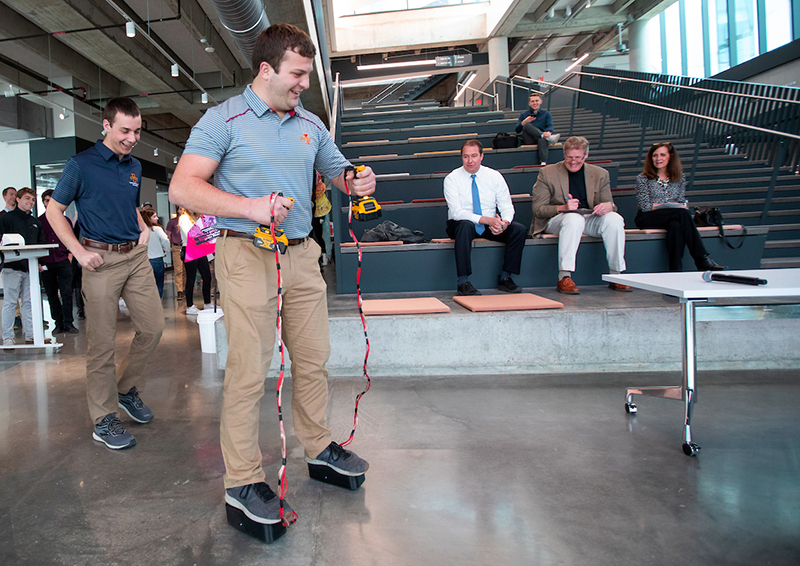
Photo by Christopher Gannon.
Mechanical engineering junior Connor Fehr (center) propels to the judging area on a prototype of the "Cruise Shoes" he and his cousin, Caleb Fehr (left), designed this semester as their capstone project. Students from the College of Engineering's eight academic departments presented their spring projects during an "Innovation in Engineering" session Tuesday, part of the annual IGNITE Innovation Showcase. In-person and virtual showcase events continue through Friday, with Thursday's events focusing on food innovation and Friday's on innovation in music.
